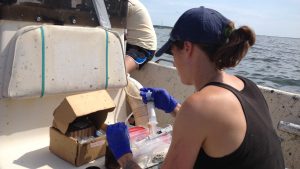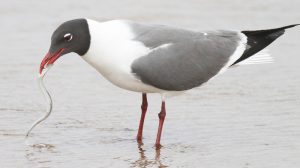Search results for: https%3A/seagrant.whoi.edu/wp-content/uploads/2018/05/LlopizetalLO2010.pdf/feed/shannon.jarbeau@barnstablecounty.org
Teacher Workshop: October, 29 2019-Coastal Wetlands
Carbon Cycling in Coastal Wetlands Presenters: Dr. Anne Giblin, Marine Biological Laboratory (MBL) Senior Scientist – Rising Seas and the Fate of Coastal Salt Marshes Dr. Meagan Eagle Gonneea, U.S. Geological Survey Research Scientist – Blue Carbon in Our Backyard: Coastal Wetlands, Climate, Management, and Markets Date: October 2019 Lesson Plans…
Read MoreHurricanes
Hurricanes Though it has been 30 years since the last major hurricane struck the Massachusetts coast, hurricanes can be devastating and they can happen here! Be smart and prepare yourself, your family and your home to minimize losses from a hurricane. https://seagrant.whoi.edu/wp-content/uploads/2020/04/Hurricanes_in_New_England.mp4 Preparing for a Hurricane in New England *From Homeowner’s Handbook to Prepare for…
Read MoreWHOI-Q-05-003 Portfolio-Estuarine and Coas
WHOI-Q-05-003 Portfolio-Estuarine and Coas
Read Moreecptheme
ecptheme
Read MoreSuggested Educational Resources For Use During School Closures
Educational resources used during school closures Woods Hole Sea Grant is pleased to be able to provide this list of educational resources to assist families and teachers with ideas and on-line programming for use during the unique school situations in response to COVID-19. IMPORTANT: Please check with state and/or local officials for the latest information…
Read MoreUnderstanding the Waquoit Bay Ecosystem
A Q&A with Sarah Foster Sarah Foster is a Boston University graduate student doing her dissertation research in Waquoit Bay (Cape Cod, Massachusetts). A biogeochemist, Sarah investigates the impact hypoxia, or low oxygen, in the water has on crucial functions within Waquoit Bay’s ecosystem. She recently published research she and her co-author, Wally Fulweiler conducted in…
Read MoreThe Little Fish with a Big Impact
In the Gulf of Maine, there’s a little eel-like fish not much bigger than a large pencil, that buries itself in the sand in the summer and swims up and down in the water column in the spring and fall. It’s called a sand lance and it’s incredibly important to the ecosystem of the Gulf of Maine. If you like whale watching, this little fish is the biggest reason you might or might not see a whale:
Read MoreMarine Mammal Threats
Marine Mammal Threats Background Many marine mammal populations are decreasing to critical levels largely due to human actions including; accidental capture in fishing gear (entanglement and bycatch), habitat destruction, pollution, commercial hunting, increase in ocean noise, increase in vessel traffic, and ship strikes. In addition, climate change is having an impact as prey moves, habitat…
Read MoreCOAST-old
Lesson Plans and Classroom Visits Coasts, Oceans, and Stewardship Program (COAST) This program is a collaboration between the NOAA Northeast Fisheries Science Center and Woods Hole Sea Grant. Woods Hole Sea Grant (WHSG) and the Northeast Fisheries Science Center (NEFSC) in Woods Hole, MA developed a program to create educational materials relating to key marine…
Read MoreShellfish
Shellfish Research » Identification of the cause of hemic neoplasia in Mercenaria mercenaria and development of management methods NRAC-USDA Fall 2017 – Fall 2019 » Market Development to Diversify Shellfish Aquaculture Products in Massachusetts NOAA SG Aquaculture Initiative: Addressing Impediments to Aqua. Opportunities Sept. 2017 – Sept. 2019 » Piloting surf clam aquaculture techniques to…
Read More

